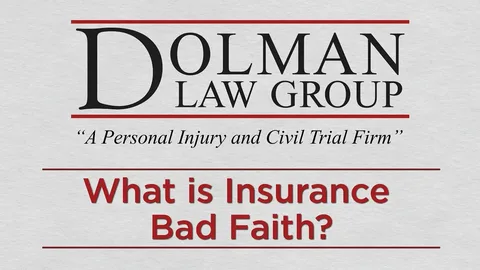What is Bad Faith Insurance?
Insurance is supposed to be your safety net, right? You pay your premiums, and in return, your insurance company promises to cover you when things go south. But what happens when your insurance company decides to play hardball and denies your legitimate claim? That’s where the concept of bad faith insurance comes into play.
Bad faith insurance occurs when an insurance company fails to honor its obligations to policyholders. This can include denying a claim without a valid reason, delaying payment, or offering less compensation than what is due. Essentially, it’s when the insurer acts in a way that is unfair or deceptive.

Why You Need a Bad Faith Insurance Lawyer
Dealing with an insurance company can be like trying to nail jelly to a wall. They have teams of lawyers and adjusters whose job is to minimize payouts. This is where a bad faith insurance lawyer steps in. These legal professionals specialize in holding insurance companies accountable and ensuring that policyholders get the compensation they deserve.
Common Bad Faith Tactics
Insurance companies have a bag of tricks they often use to avoid paying out claims. Here are some common tactics:
- Denying Claims Without Reason: Sometimes, insurers deny claims without providing a valid reason. This can be incredibly frustrating and leave policyholders feeling helpless.
- Delaying Payments: Another tactic is to delay payments, hoping that the policyholder will give up or settle for less.
- Lowball Offers: Offering a settlement that is significantly lower than what the policyholder is entitled to is a common strategy.
- Misrepresenting Policy Terms: Insurers might misinterpret or misrepresent the terms of the policy to avoid paying out.
How to Identify Bad Faith Insurance
Identifying bad faith insurance can be tricky, but there are some red flags to watch out for:
- Unreasonable Delays: If your claim is taking an unusually long time to process, it might be a sign of bad faith.
- Lack of Communication: If the insurance company is not responding to your inquiries or providing updates, this could be a tactic to delay or deny your claim.
- Unjustified Denials: If your claim is denied without a clear and valid reason, it might be time to consult a lawyer.

Steps to Take if You Suspect Bad Faith
If you suspect that your insurance company is acting in bad faith, here are some steps you can take:
- Document Everything: Keep detailed records of all communications with the insurance company, including emails, letters, and phone calls.
- Request a Written Explanation: Ask the insurance company to provide a written explanation for any denial or delay.
- Consult a Lawyer: A bad faith insurance lawyer can review your case and advise you on the best course of action.
Finding the Right Bad Faith Insurance Lawyer
Finding the right lawyer can make all the difference in your case. Here are some tips for finding a good bad faith insurance lawyer:
- Experience: Look for a lawyer with experience in handling bad faith insurance cases.
- Reputation: Check online reviews and ask for references to gauge the lawyer’s reputation.
- Communication: Choose a lawyer who communicates clearly and keeps you informed throughout the process.
The Legal Process
The legal process for a bad faith insurance claim can be complex, but here is a general overview:
- Initial Consultation: The lawyer will review your case and determine if you have a valid claim.
- Investigation: The lawyer will gather evidence to support your claim, including documents, witness statements, and expert opinions.
- Negotiation: The lawyer will negotiate with the insurance company to try to reach a settlement.
- Litigation: If a settlement cannot be reached, the lawyer will file a lawsuit and represent you in court.
Potential Outcomes
The outcome of a bad faith insurance claim can vary, but here are some potential results:
- Settlement: The insurance company agrees to pay a fair amount to settle the claim.
- Court Judgment: If the case goes to court, the judge may order the insurance company to pay the full amount of the claim, plus additional damages.
- Punitive Damages: In some cases, the court may award punitive damages to punish the insurance company for its bad faith actions.
Real-Life Examples
To give you a better idea of how bad faith insurance claims work, here are some real-life examples:
- Case 1: A homeowner’s insurance company denied a claim for water damage, arguing that it was due to negligence. The policyholder hired a bad faith insurance lawyer, who proved that the damage was covered under the policy. The insurance company settled for the full amount of the claim plus additional damages.
- Case 2: An auto insurance company delayed payment on a claim for months, causing financial hardship for the policyholder. The policyholder sued for bad faith, and the court awarded punitive damages in addition to the claim amount.

Conclusion
Dealing with an insurance company can be a daunting task, especially when they are acting in bad faith. A bad faith insurance lawyer can help level the playing field and ensure that you get the compensation you deserve. If you suspect that your insurance company is not acting in your best interest, don’t hesitate to seek legal advice.
Remember, insurance is supposed to be your safety net, not a trapdoor. Stay informed, stay vigilant, and don’t let the insurance companies get away with bad faith practices.
I hope this article helps you understand the importance of bad faith insurance lawyers and how they can assist you in getting the compensation you deserve. If you have any specific questions or need further information, feel free to ask!



